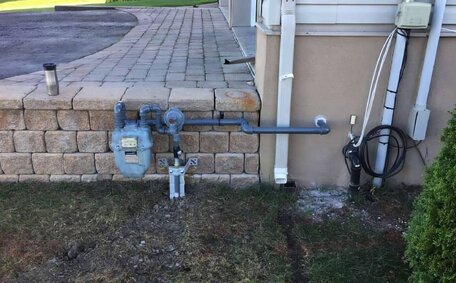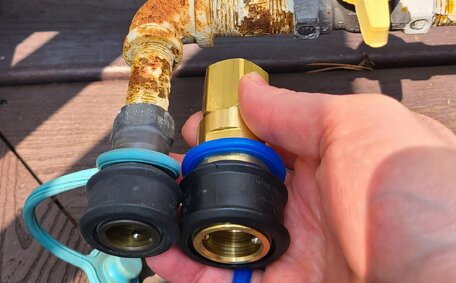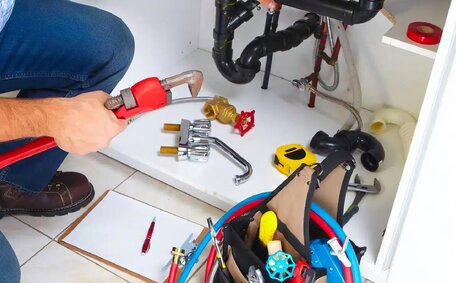Introduction to connecting hot water systems with smart home technology
The integration of hot water systems with smart home technology is a progressive step, using increased connectivity for better control and higher efficiency. Connecting water heaters and controllers to smart hubs allows for convenient monitoring and control from a single interface. This innovation leads to better energy efficiency, cost savings and greater user control of the water heater.
Smart electric water heaters employ internet-connected components and smart assistants for added functionality, potentially reducing energy expenses. Users can access real-time data on hot water usage and receive alerts to deactivate the heater if problems arise.
Devices like smart thermostats, leak sensors, and electric water heaters specifically can now tie into smart home dashboards. Water heating systems can now self-adjust based on use patterns, or even turn off automatically for peak energy efficiency.
The integration of hot water energy-efficient appliances is poised to transform residential water heating much the same way smart thermostats have revolutionised HVAC systems. Early adopters of electric hot water systems may enjoy enhanced management, energy savings via remote shut-off capabilities, and potential rebates for energy-efficient models, all improving cost-effectiveness.
As smart water heater technology evolves, efficient hot water devices are set to become vital to contemporary connected households.
Benefits of a smart water heating system
Smart heat pump water systems paired with efficient tanks offer multiple efficiency benefits compared to traditional heaters:
- Remote monitoring and control - You can control systems via smartphone apps, allowing you to adjust temperatures and set schedules for every day from anywhere.
- Optimised heating cycles - Smart controllers adapt to usage patterns, heating water as needed during high demand times.
- Enhanced energy savings - Heat pump technology minimises standby losses and heats water efficiently, leading to up to 30% savings on heating costs.
- Leak detection alerts - Sensors can identify plumbing leaks and send immediate notifications to homeowners.
- Preventative maintenance - Data from smart system technologies allows for better tracking of equipment performance and servicing needs.
- Voice control integration - Features like asking Alexa or Google Assistant to turn your water heater on or off during times of non-use provides added convenience.
As smart water heating technology continues advancing, the benefits of connecting your solar system to home automation platforms will become more multifaceted. The level of insight and control offered by these innovative systems harnessing solar energy outpaces conventional water heaters in nearly every way.
Types of smart water heaters
Two primary types of smart water heaters exist to enhance energy efficiency and control:
Heat pump water heaters
Solar-powered heat pump models are among the top smart water heating options in terms of efficiency. These Systems can use a heat exchanger and compressor to extract heat from surrounding air and transfer it to the hot water tank. They can save money, about 50-60% on water heating costs compared to conventional electric water heaters, substantially enhancing the efficiency of hot water pumps.
Despite higher initial costs, pump water heaters offer a rapid return on investment via energy savings. They also dehumidify and heat air indoors, which may prolong your hot water tank’s life and contribute to your home’s comfort. One downside is that their performance may wane in extremely cold weather.
Electric heat pump units
Some heat pump water heaters are designed to fit under a kitchen sink or in tight spaces. Though smaller in capacity than whole-home systems, These small electric units consistently supply hot water and can cut heating costs by approximately 50%.
Smart control systems
Smart control systems, as add-ons to existing heaters, automate and enhance the efficiency of conventional water heating units. This might include a wi-fi connected thermostat to regulate water temperature more precisely and reduce your water heater system’s energy consumption when a heat pump is in demand.
Smart controllers can attain minor energy savings on current setups, especially when used to enhance efficiency during periods of lower energy prices. They also work with heat pump systems to further enhance efficiency and performance of the overall heat pump system.
How to connect a hot water system to a smart home
Connecting a hot water system to a smart home typically requires a wi-fi enabled controller or add-on device. Leading hot water heater brands offer smart control kits suitable for integrating various systems, like tankless, heat pump, and solar heaters, with smart home ecosystems.
Here are the basic steps to control hot water via linking your hot water heater to a smart home hub:
- Purchase a compatible smart control add-on or kit from the manufacturer of your existing water heater. Common options include Flux, Rheem EcoNet, Rinnai Circ-Logic, and Bradford White Intelli-Vent.
- Install the smart controller by following the detailed instructions included. Most smart controls wirelessly connect temperature sensors and an actuator or circulating pump system to enable remote heating adjustments and optimisation.
- Download your smart home system’s app and connect the water heating control. You may need to scan a QR code printed on the device and enter your wi-fi network password to sync it.
- Follow any additional app setup and configuration prompts to enable remote functionality. Features like temperature control, leak detection alerts, usage reports may require further customization through the software.
- Consider connecting other smart products like voice assistants or switches to maximise capabilities like voice activation and energy-saving modes while away from home.
For complex system integrations or conversions involving new smart water heating equipment like solar hot water systems with solar panels or heat pump units, we recommend contacting a professional like Marsfield Plumbing. Smart home technology makes controlling water heating convenient, providing peace of mind that your system consistently delivers reliable flow and temperatures for household needs.
Integrating hot water with other smart devices
Integrating a hot water system with smart home technology, such as a solar power system, facilitates convenient monitoring and control alongside other devices. Popular options like voice assistants and smart switches offer handy ways to manage your hot water remotely.
Voice control
By linking with voice assistants like Alexa or Google Assistant, smart water heating controls enable voice-activated commands that can utilise surplus solar energy. Asking your smart speaker to turn the hot water on or can turn it off, adjust temperatures higher or lower, and receive system status updates can promote regular interaction.
Smart switches
Smart light switches, including smart switch technology, offer another way to remotely control water heating with automated on/off functionality. Geo-enabled switches that activate when residents come and go can achieve additional efficiency.
Centralised dashboards
A centralised dashboard displaying hot water usage alongside other energy systems allows for informed decisions about efficiency measures. Monitoring overall consumption can help identify issues prompting unnecessary energy usage.
Smart water heaters, however, they’re designed, that use energy wisely integrate well with other connected home technologies, maximising their capabilities—as I wanted in a modern home. With professional guidance from trusted providers like Marsfield Plumbing, homeowners can implement secure, seamless integration with smart hubs for amplified convenience and savings.
Considerations before upgrading to a smart water heater
Upgrading to a smart water heating system with an electric booster, including solar PV water heaters, is an exciting prospect for homeowners seeking greater efficiency and control. However, there are a few key aspects to weigh before taking the leap:
Upfront costs and payback period
Although the initial cost of heat pump hot water systems is higher than conventional models, they offer considerable long-term savings. Expect to pay a premium of $1000 or more for equipment and installation. Consider whether energy savings over the lifetime of the system offset the higher upfront costs.
System compatibility
Ensure any smart controllers or heat pumps you install are compatible with your existing hot water tanks and setup, considering how much they will optimize your water heating. This might entail electrical modifications or tank retrofits. Also confirm that smart controls integrate with your smart home platform.
Home size and hot water demand
Make sure the system’s capacity and water storage align with your household’s water needs. Smart heat pump water heaters typically work best for 2-4 person homes with moderate demand.
Equipment longevity
Consider the warranty coverage and expected lifespan of smart water heating components. While cutting-edge, the technology is still evolving. Opt for established brands and equipment rated for long-term reliable operation.
Engaging with a plumbing professional ensures that the smart water heating system suits your household needs and provides sustained advantages.
The future of smart hot water systems
Smart hot water systems, particularly those integrated with heating and cooling, have a promising future as the technology evolves. With further integration of artificial intelligence and machine learning, systems that use excess solar energy will likely become more predictive and efficient at managing hot water to match usage patterns.
We can expect to see smart water heaters, ideal for any new home, that are capable of automatically adjusting temperatures according to weather forecasts, electricity tariff fluctuations, and peak solar generation from an integrated PV system. Energy storage capabilities may also improve through your solar thermal tanks that bank hot water for when need arises.
Smart water heating will play a pivotal role in the wider adoption of smart home technology and sustainable living. Seamless connectivity with related systems like HVAC, lighting and appliances will optimise overall energy consumption. The ability to track detailed water usage data further emphasises consumer awareness and accountability.
However, as urban populations increase, smart water heating can support the transition to smart cities by flexing to meet changing demand across precincts while reducing the energy burden. Ultimately by investing in smart technology like energy-efficient heat pumps, homeowners future-proof for carbon-neutral operation.
This fusion of sustainability and connectivity establishes smart water heating as a key upgrade to consider for forward-thinking homeowners. With professional consultation from trusted providers like Marsfield Plumbing, the systems can deliver reliability and return on investment for decades to come.






